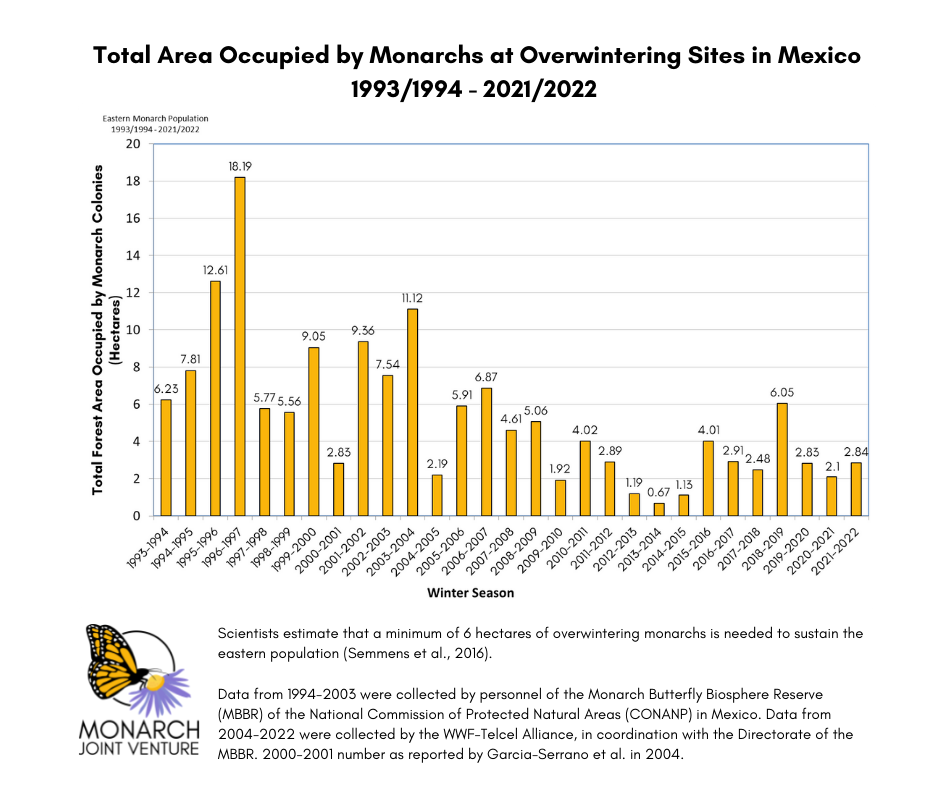
In a report released this week from the World Wildlife Fund Mexico (WWF), scientists determined monarchs occupied 2.84 hectares in December 2021, a modest increase from the 2.10 hectares occupied in December 2020. The report notes the 35% increase in monarch butterfly overwintering population numbers between 2020 and 2021 gives some reason for hope given several decades of decline in southern overwintering sites. Because it is impossible to count each butterfly, the survey measures the area of forest the monarchs occupy each winter in the hibernation colonies, providing an indicator of their population status, according to WWF Mexico. The status of the eastern monarch populations comes soon after the recent announcement of a strong rally for overwintering western monarch populations.
While the 2021eastern monarch overwintering population estimate is welcome news, there is still more work to be done. It is estimated that 6 hectares of hibernating monarchs are required to maintain a sustainable eastern monarch population, more than double the population announced this week. The U.S. Fish and Wildlife Service tracks monarch conservation efforts and acres of habitat planted through the Monarch Conservation Database (MCD). Since 2015, the data entered into the MCD indicates 50,000 conservation efforts have been undertaken, which adds up to over 6 million acres of habitat and an estimated half a billion milkweed stems.
Last year, several conservation researchers, industry partners, and advocacy groups called for a coordinated transnational effort between the United States, Canada, and Mexico to protect and support the monarch butterfly migration. WWF Mexico General Manager Jorge Rickards noted the effort in the announcement of the 2021 numbers.
“The increase in monarch butterflies is good news and indicates that we should continue working to maintain and reinforce conservation measures by Mexico, the United States, and Canada,” said Rickards. “Monarchs are important pollinators, and their migratory journey helps promote greater diversity of flowering plants, which benefits other species in natural ecosystems and contributes to the production of food for human consumption.”
Please visit the Farmers for Monarchs State Resources page or call our Pollinator Habitat Help Desk at (337) 422-4828 or (337) HABITAT to get the information you need to establish habitat on your land.
